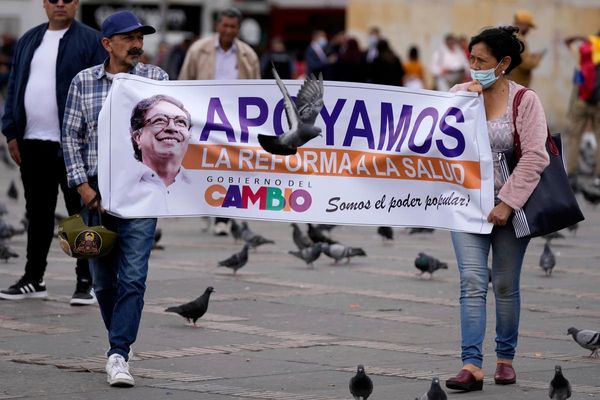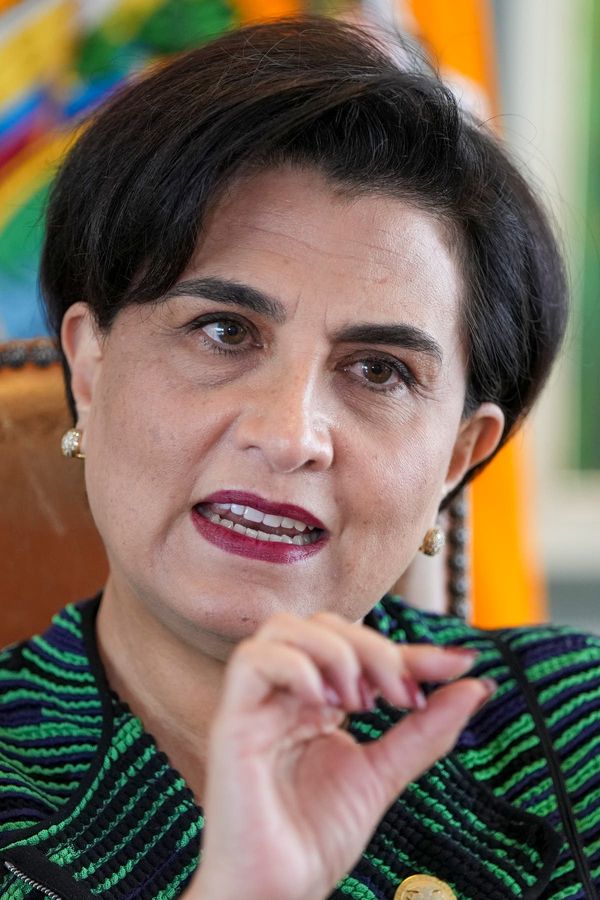
On the wall of Hagai Ben Yehuda’s bakery on a kibbutz near Petah Tikva hangs a black-and-white photograph of Miriam and Moshe Rozental, who came to Ottoman-era Palestine from Poland in 1870.
Moshe was a baker: over the years, his descendants grew the family business into one of Israel’s largest bread companies. Five generations later, Ben Yehuda is taking his relatives’ legacy in a new direction, breathing fresh life into ancient bread-making traditions by reviving local varieties of wheat from thousands of years ago.
“My grandfather told me that we used to sell rye bread, mostly. He said sometimes the Arab farmers would sell their wheat to him. According to him, it would make a yellowish flour and be some of the best bread,” the 36-year-old said, as he blessed and fed dough into a wood-burning oven during the Observer’s visit.
“Now I have learned that it was durum wheat. I wanted to slow down and understand where food really comes from. It feels good to continue in my family’s footsteps.”
In 2014 Ben Yehuda attended a workshop for agricultural bakers in Brittany, France, keen to learn more about traditional and ancient wheat. To his surprise, both the teacher and the other participants wanted to learn about practices from Israel instead – the historical Fertile Crescent, where the grain was first cultivated.
On his return home, the baker began researching emmer, the “mother of wheat”, which was used for bread in Biblical times and rediscovered growing wild near Mount Hermon, on the borders with Syria and Lebanon, in the 1940s. Other strains of intriguing colours, shapes and sizes included jaljuli, hourani, abu fashi and dubiya samra – all grown locally for millennia, but by the 1960s replaced by imported common wheat, which has a much higher monetary yield.

Ben Yehuda got in touch with the Volcani Centre, Israel’s agricultural research institute, to see if he could obtain some of these heirloom variety seeds, plant them, and find out what the bread would taste like.
“I didn’t have any idea what I was doing. I didn’t know anything about agriculture,” he said. “I decided I should approach it like a winemaker. They know everything about the soil, the sun, the elevation. Being guided by the character of the wheat would make me a better baker.”
Ben Yehuda started with a one-acre plot in Moshav Nehalim, in the north of Israel. Over time, he became familiar with the differences between wheat, barley and oat, as well as milk thistle, mallow and mustard. Determined not to use pesticides, he tested the best ways to prepare, sow and crop his small yield, learning the rhythms of the seasons. After five years, he collected enough grain to start growing across five acres.
Finally ready to bake with heirloom wheat, Ben Yehuda has experimented with locally produced flavours, aromas and textures, European techniques and imported organic flours to arrive at what is now one of his signatures: an einkorn sourdough.
Drawing diagrams in flour on the work surface, the baker explains that his French stone mill works in such a way that interlocking grooves slowly peel the grain, rather than crushing it, leaving the germ and most of its minerals and vitamins intact. The bran is filtered out by a spinning sifting machine, leaving behind soft bread flour.
Flour, salt and water are the only ingredients in the sourdough loaves, which are baked in a huge rotating stone oven especially built on site at Ben Yehuda’s house by experts from Barcelona.
The result has a dark, crumbly crust and nutty, slightly sweet flavour: it tastes best served with butter, olive oil or honey.

Working with his business partner, Baruch Borochov, 32, and with a lot of help from his wife, Noa, 36, an interior designer, Ben Yehuda now makes 250 to 300 loaves a day, most of which are sold to restaurants and delicatessens in Tel Aviv.
He is also taking part in an exhibition exploring the baking traditions of 17th-century Jerusalem currently being held at the city’s Asif Centre, a non-profit organisation dedicated to “cultivating and nurturing Israel’s diverse and creative food culture”. For the exhibit, Ben Yehuda made flat bread from ancient durum wheat in a traditional clay and straw oven hand-built by Palestinian women living in Susiya, a village in the occupied West Bank.
Ben Yehuda is now looking for a bigger platform for his innovations: he and Borochov hope to move out of the workshop in Kibbutz Einat and open a bigger bakery and their own shop in Tel Aviv, where they can be closer to markets, and start selling to individual customers.
“You need to be confident, to find your own voice in this work. I had an identity crisis when I went to Brittany and people asked, ‘What is special about your bread, about Israeli bread?’ and I couldn’t answer,” Ben Yehuda said. “Now if bakers from France, Italy, Germany ask me, I can tell them: this is the taste of this land.”







